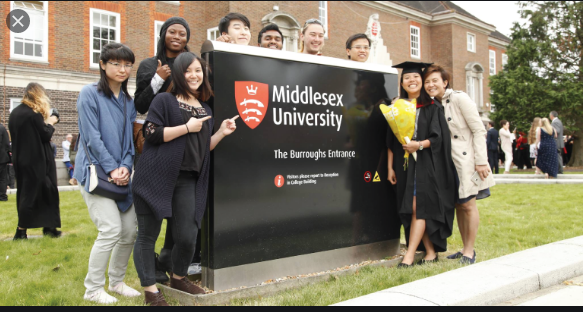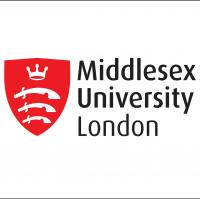Creative Writing and Journalism BA Honours
Overview
Why study creative writing and journalism with us
With our journalism and creative writing course you don't have to pick between the two areas of interest. Our course offers the unique experience of combining both subjects, so you can develop your skills as a writer across different styles.
During the course, you'll cover everything you'll need to know about journalism – from shorthand to digital media. You'll also learn about the life of a journalist whether you want to write for a newspaper, magazine, or online platforms.
On the creative writing side, you'll learn how to critically examine different types of writing – our course gives you plenty of opportunities to experiment with language, styles and formats.
This course prepares you to enter the industry as a professional journalist or go on to work in all sorts of creative industries, from creative writing to comedy.
You'll learn alongside professional authors, playwrights, scriptwriters, and journalists as you develop the skills you need. You'll also get plenty of practice with opportunities like North London Story Festival and many others.
Our staff include biographer and novelist Lorna Gibb, novelist and short story writer Adam Lively, script writer and director David Cottis and journalist Yasmin Alibhai-Brown.
Develop your skills with our course
This course is ideal if you want to improve your skills as a writer and gain a theoretical foundation of best writing practices. You'll study all forms of writing, both fiction and non-fiction, as well as drama and screenwriting. You'll also take an in-depth look at the way journalism and writing industries are developing today.
Learning to communicate effectively, you'll learn essential journalism and creative writing skills such as narrative, character, and developing dialogue and conflict.
Later in the course, you'll take part in a work placement in order to put your new skills to practice in a work environment. Previously, we have placed our students with some of the most prestigious media outlets in the UK.
Networking and support
We ensure that every student has full support throughout their time with us. That’s why you’ll get matched with a Personal Tutor as well as a Student Learning Assistant and a Graduate Academic Assistant. They’ll have experience in your subject area and will be able to help whenever you need.
If you want a successful career in journalism or writing-based role, then this is the course to consider. We’ll help you develop the skills and relationships you need to thrive in your chosen career path
Intakes
- Sep
Application Processing Time in Days: 30
Application Process
Minimum English Language Requirements
| English Level Description | IELTS (1.0 -9.0) | TOEFL IBT (0-120) | TOEFL CBT (0-300) | PTE (10-90) | |
|---|---|---|---|---|---|
| Expert | 9 | 120 | 297-300 | 86-90 | |
| Very Good | 8.5 | 115-119 | 280-293 | 83-86 | |
| Very Good | 8 | 110-114 | 270-280 | 79-83 | |
| Good | 7.5 | 102-109 | 253-267 | 73-79 | |
| Good | 7 | 94-101 | 240-253 | 65-73 | |
| Competent | 6.5 | 79-93 | 213-233 | 58-65 | |
| Competent | 6 | 60-78 | 170-210 | 50-58 | |
| Modest | 5.5 | 46-59 | 133-210 | 43-50 | |
| Modest | 5 | 35-45 | 107-133 | 36-43 | |
| Limited | 4 | 32-34 | 97-103 | 30-36 | |
| Extremely Limited | < 4 | < 31 | < 93 | < 30 |
Admission Requirement / Eligibility Criteria
112 UCAS points
To find out more about the qualifications we accept from your country please visit the relevant support in your country page. If you are unsure about the suitability of your qualifications or would like help with your application, please contact your nearest regional office for support.
Middlesex University has a flexible and personalised approach to admissions and we accept applications from students with a wide range of qualifications and a combination of qualifications.
Applications from mature candidates without formal qualifications are welcomed, provided they can demonstrate appropriate levels of relevant ability and experience.
Visas and immigration
You will not need a visa to study in the UK if you are a citizen of the European Union, Iceland, Liechtenstein, Norway or Switzerland. If you are a national of any other country you may need a visa to study in the UK. Please see our Visas and immigration page for further information.
- Course Type: Full Time
- Course Level: Bachelors/UG Degree
- Duration: 03 Year
-
Total Tuition Fee:
40200 GBP
Annual Cost of Living: 12006 GBP
Application Fee: N/A
Similar Programs
- Visual Effects BA Honours at Middlesex University London
- Theatre Performance and Production BA at Middlesex University London
- Theatre Design and Production BA at Middlesex University London
- Television and Digital Production BA Honours at Middlesex University London
- Sociology with Psychology BA Honours at Middlesex University London
- Sociology with Criminology BA Honours at Middlesex University London

